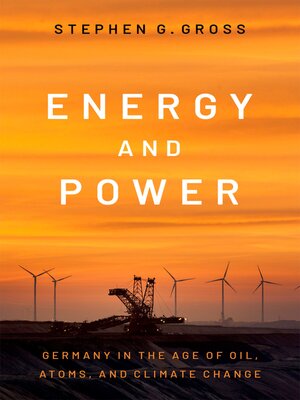
Sign up to save your library
With an OverDrive account, you can save your favorite libraries for at-a-glance information about availability. Find out more about OverDrive accounts.
Find this title in Libby, the library reading app by OverDrive.



Search for a digital library with this title
Title found at these libraries:
| Loading... |
A novel exploration of the deeper political, economic, and geopolitical history behind Germany's daring campaign to restructure its energy system around green power. Since the 1990s, Germany has embarked on a daring campaign to restructure its energy system around renewable power, sparking a global revolution in solar and wind technology. But this pioneering energy transition has been plagued with problems. In Energy and Power, Stephen G. Gross explains the deeper origins of the Energiewende—Germany's transition to green energy—and offers the first comprehensive history of German energy and climate policy from World War II to the present. The book follows the Federal Republic as it passed through five energy transitions from the dramatic shift to oil that nearly wiped out the nation's hard coal sector, to the oil shocks and the rise of the Green movement in the 1970s and 1980s, the co-creation of a natural gas infrastructure with Russia, and the transition to renewable power today. He shows how debates over energy profoundly shaped the course of German history and influenced the landmark developments that define modern Europe. As Gross argues, the intense and early politicization of energy led the Federal Republic to diverge from the United States and rethink its fossil economy well before global warming became a public issue, building a green energy system in the name of many social goals. Yet Germany's experience also illustrates the difficulty, the political battles, and the unintended consequences that surround energy transitions. By combining economy theory with a study of interest groups, ideas, and political mobilization, Energy and Power offers a novel explanation for why energy transitions happen. Further, it provides a powerful lens to move beyond conventional debates on Germany's East-West divide, or its postwar engagement with the Holocaust, to explore how this nation has shaped the contemporary world in other important ways.






